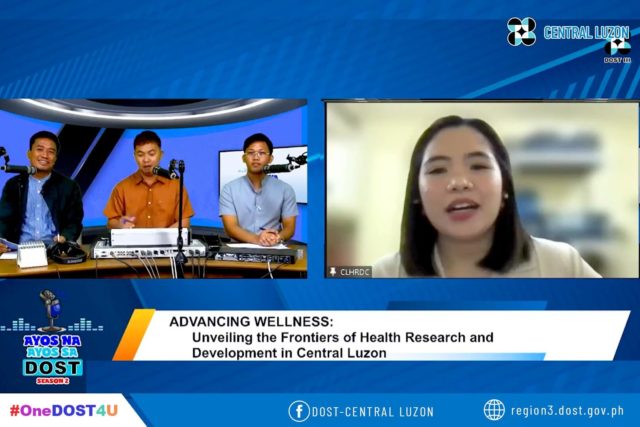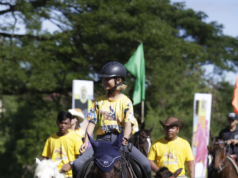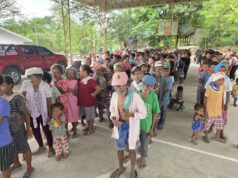
SCIENCE CITY OF MUÑOZ (PIA) — Department of Science and Technology (DOST) Central Luzon Health Research and Development Consortium (CLHRDC) is accepting research proposals to be supported under the Regional Research Fund (RRF).
This is an initiative of the Philippine Council for Health Research and Development, which is viewed as a way to encourage new researchers to be actively involved in health research activities without having to compete with more experienced researchers.
CLHRDC Project Technical Specialist III Camille Louise Manalad explained that RRF aims to empower new researchers by providing financial support of up to P500,000 for projects aligned with the Regional Health Research Priorities 2023-2028.
These include non-communicable diseases, communicable diseases, nutrition and food security, technology and innovations for health; as well as maternal, newborn, child, and adolescent health.
Also, disaster risk reduction and management and climate change adaptation for health, mental health and substance abuse, health systems strengthening, health promotion and education, and financial risk protection.
Moreover, research proposals that address priority health problems or issues identified in the National Unified Health Research Agenda of the Philippine National Health Research System are also qualified for funding.
With these priorities, Manalad reiterated that the consortium seeks to improve the health and quality of life of Central Luzon residents through health research.
Eligible applicants for RRF projects are regular staff and faculty members of research institutes, medical and allied health sciences, hospitals, and other health-related agencies.
Medical residents of hospitals may also submit proposals under the supervision of experienced researchers affiliated with the same institution.
“If they lack funding, this is a way for them to conduct their desired research study. This is also a way for them to build their track record. This track record will allow them to tap into bigger projects worth funding of one million pesos or more in the future,” Manalad said.
Furthermore, RRF projects are intended to build up the capabilities of individual researchers in designing, implementing, and managing health research projects.
As such, CLHRDC encouraged researchers and institutions to contribute to advancing health research in the region.
For more information and submission guidelines, interested individuals may visit the official CLHRDC website at https://region3.healthresearch.ph or contact them through email at region3.healthresearch@gmail.com. (CLJD/MAECR-PIA 3)




